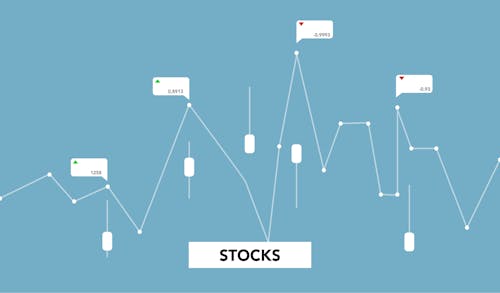
 Image Source: Pexels
Image Source: Pexels
The Federal Reserve is expected to cut interest rates in September for the first time in four years and the stock market should feel an immediate jolt when it happens.But there are some stocks that could see a sustained run as a direct result of interest rates moving lower.Here are 3 stocks in particular that should benefit from interest rate cuts.
1. Amazon
As the world’s largest e-commerce retailer, Amazon (Nasdaq: AMZN) stock should move higher if the Fed lowers interest rates in September.That’s because a lower federal funds rate, which is the rate banks use for overnight lending, affects all other interest rates, from mortgages to credit cards to car loans. The main reason the Fed lowers rates is to spur economic activity by making the cost of borrowing lower.In the case of Amazon, the company makes 60% of its revenue from ecommerce sales on Amazon.com, and about 80% from U.S. and international net sales combined. When rates are lower, consumers won’t pay as much in interest to buy things.This, in turn, should significantly impact Amazon’s sales, as the company makes money in fees from every item sold on its platform. With consumers paying lower rates on their purchases, it should spark an increase in activity on the platform, and boost net sales for Amazon.Wall Street analysts have set a $220 price target for Amazon, which suggests a 23% increase in its stock price.
2. Affirm Holdings
Small and midcap stocks have generally been the hardest hit by the rate tightening policy over the past four years. While large companies typically have the liquidity and capital to continue to invest in the company during periods of higher rates, it is a different story for smaller companies. Many small caps don’t have the margins, cash, or earnings to invest in their growth at the high borrowing rates created by high interest rates.So, when interest rates start to come down, small caps in general should thrive, as it will cost less to borrow and invest, and create less of a drag on earnings.Affirm Holdings (Nasdaq: AFRM) is one smaller company that should benefit from rate cuts. Affirm is a leading buy now, pay later (BNPL) company that offers installment loans to customers at the point of sale, whether its online or in-person at the store. It makes money from merchants each time the service is used, and from interest on loans repaid by consumers.But Affirm has struggled to make profits during this period of high interest rates. Since it is not a bank, it must use third party banks for the loans, and with rates high, it pays more for those loans. Another reason is high interest rates hurt consumers too, making them less inclined to make purchases with high interest loans. When rates come down, it will begin to alleviate both of these pressures for Affirm.Affirm stock is down 34% YTD, but it has a median price target of $40 per share, suggesting it has 28% upside.
3. PayPal
PayPal (Nasdaq: PYPL) should also surge following any Fed rate cut for many of the same reasons as Amazon and Affirm.For starters, PayPal is a payment platform, that makes money the more people and businesses use it to buy goods and services. So, as with Amazon, lower rates should generate more activity on its platform, as PayPal generates fees from merchants who use the service, as well as consumers.Amazon has been in turnaround mode, as it has improved its transaction margins, lowered expense growth, and it boosted its revenue and earnings guidance for fiscal 2024. It also just signed a deal with Adyen, a Dutch payment provider, to add PayPal’s accelerated Fastlane checkout function for its U.S. customers.The stock is also fairly cheap, trading at 15 times forward earnings. The stock price is up about 16% YTD to $71 per share, and it recently got a price target upgrade to $80 per share from JPMorgan, which would be about a 12% gain.If the Federal Reserve does lower interest rates as expected in September, look for these 3 stocks to pop.More By This Author:Market Shock Incoming? Powell’s Fed Rate Impact
Bitcoin Exposed: Separating Fact From Fiction
Recession Of The Century?














